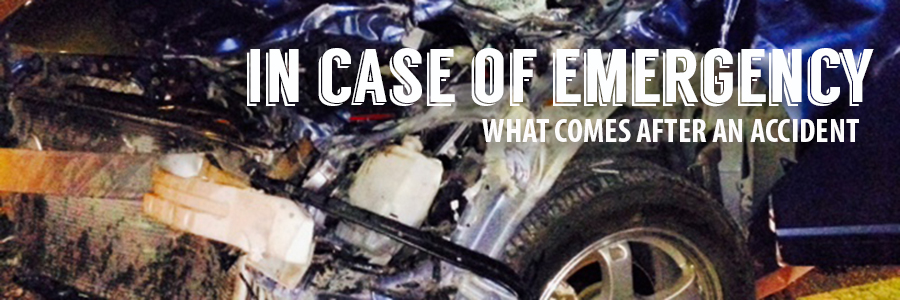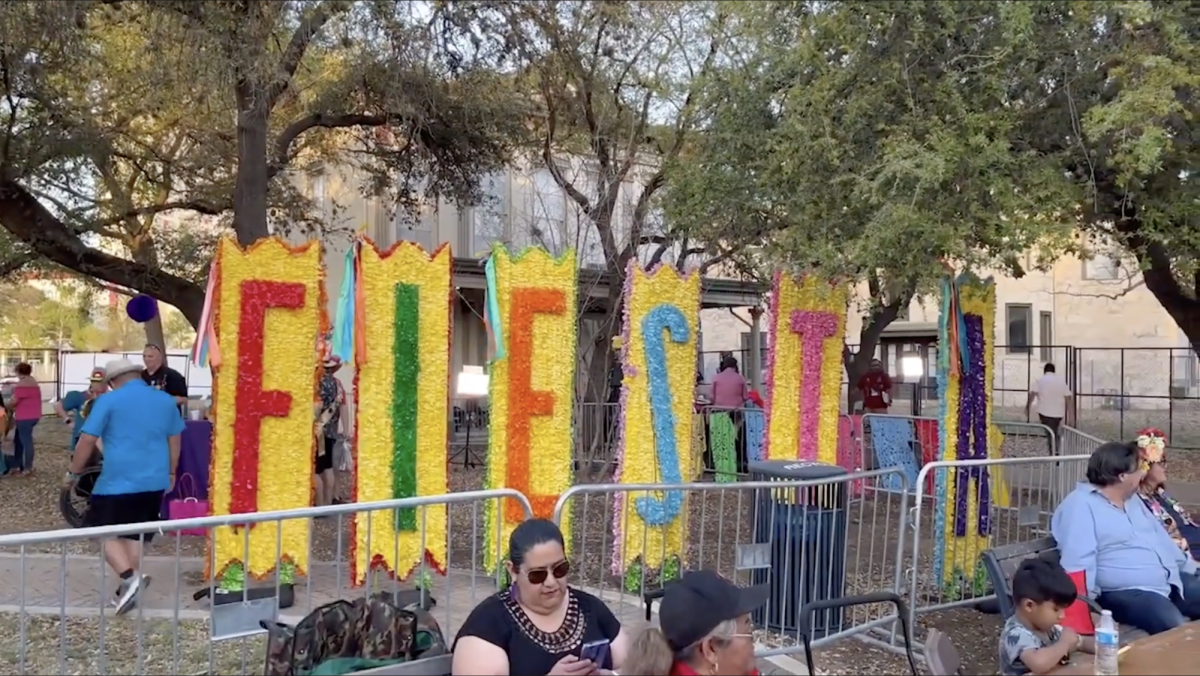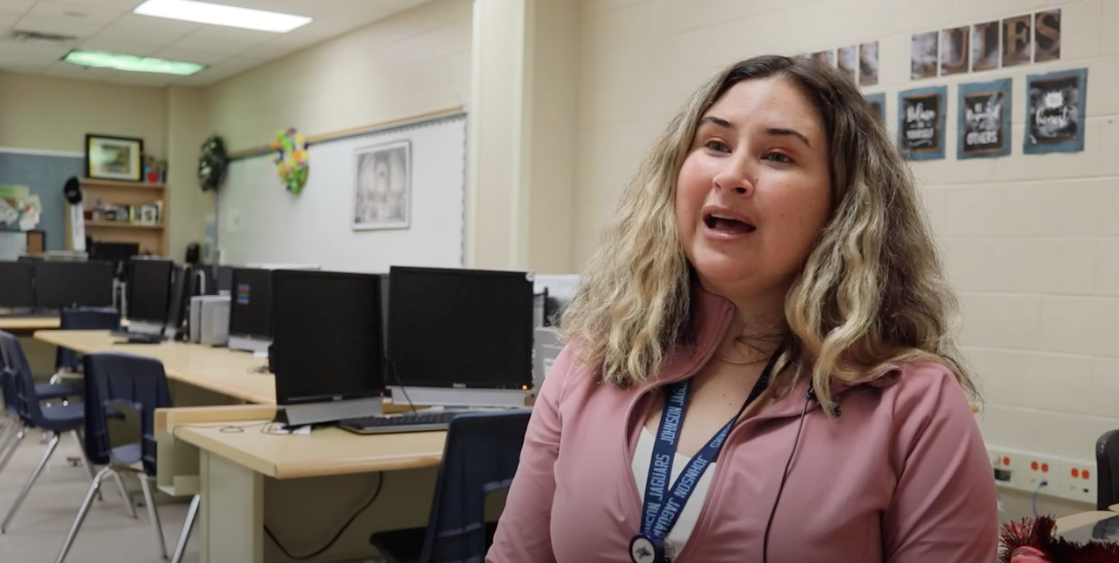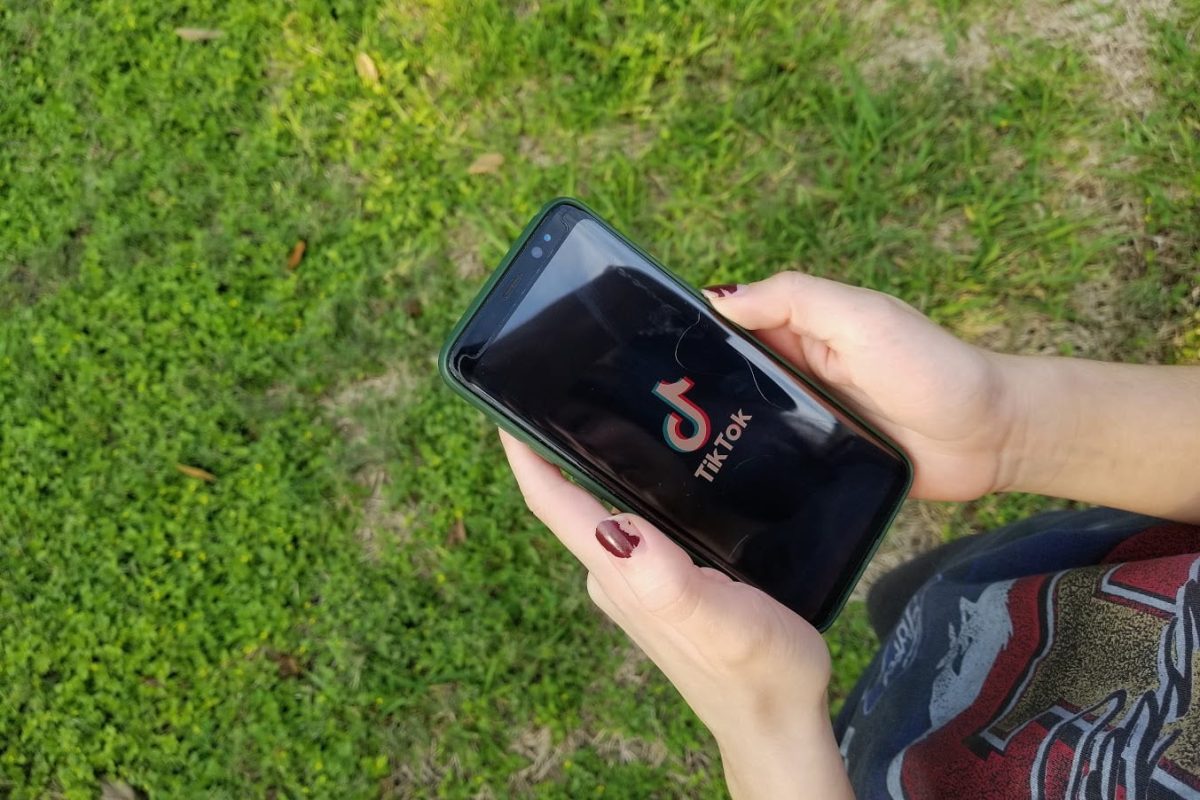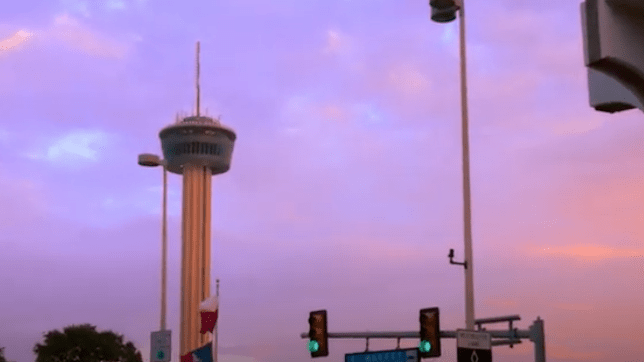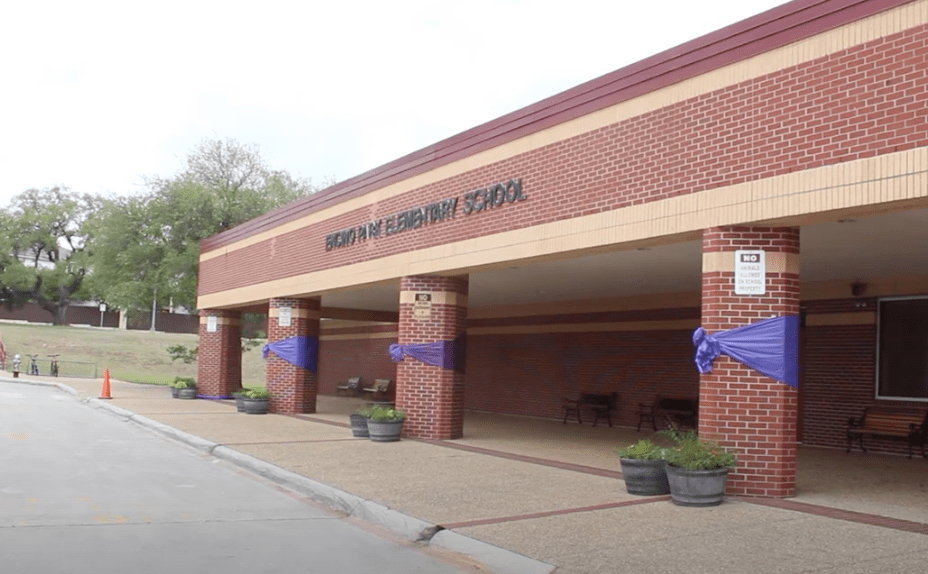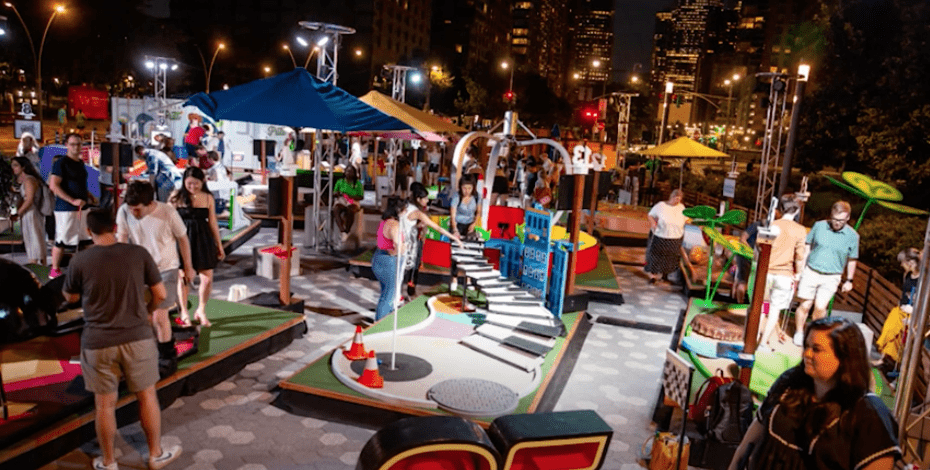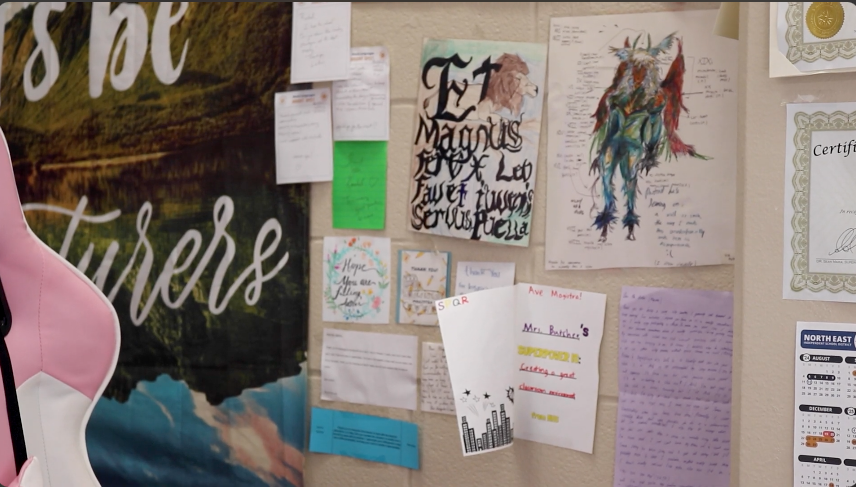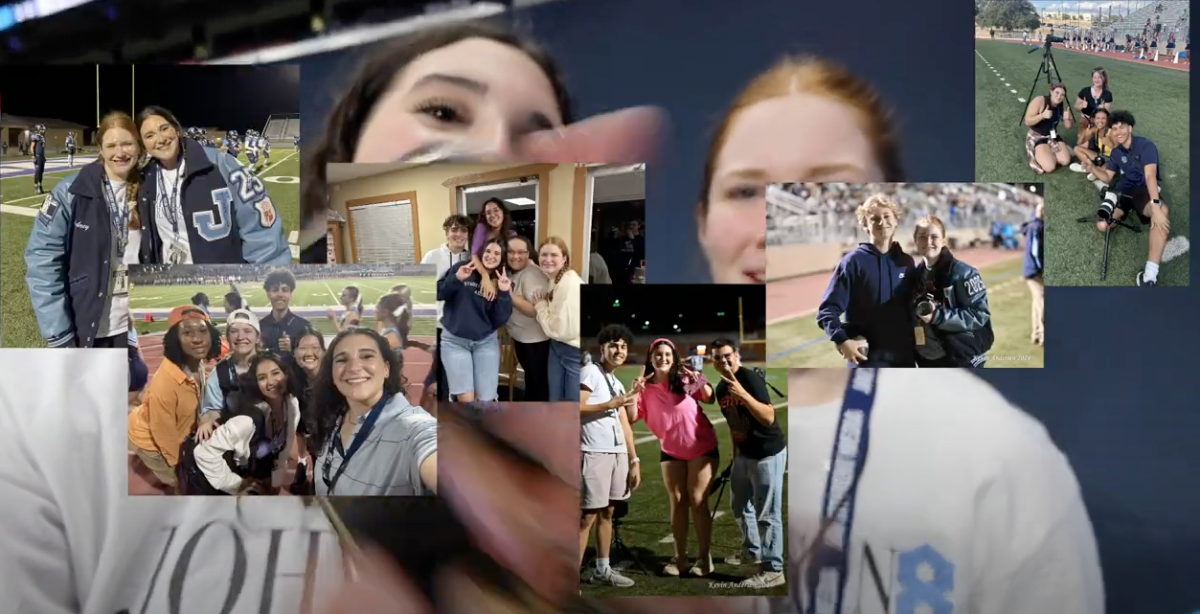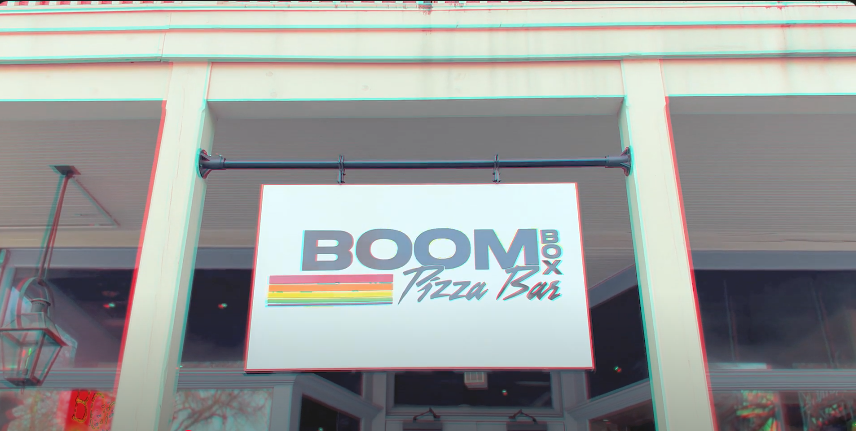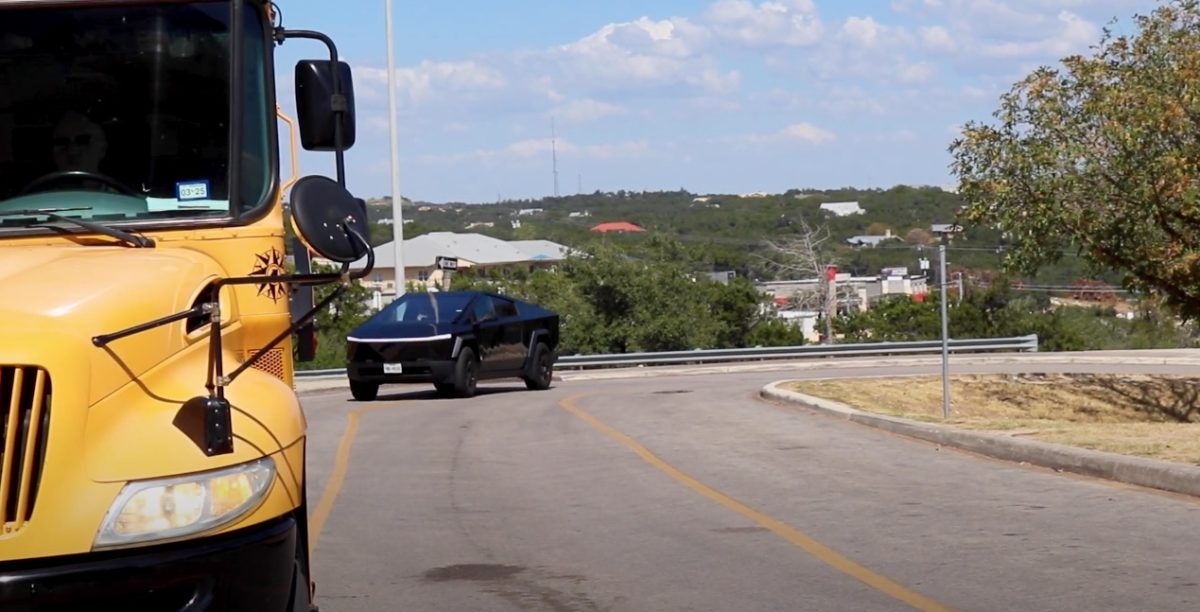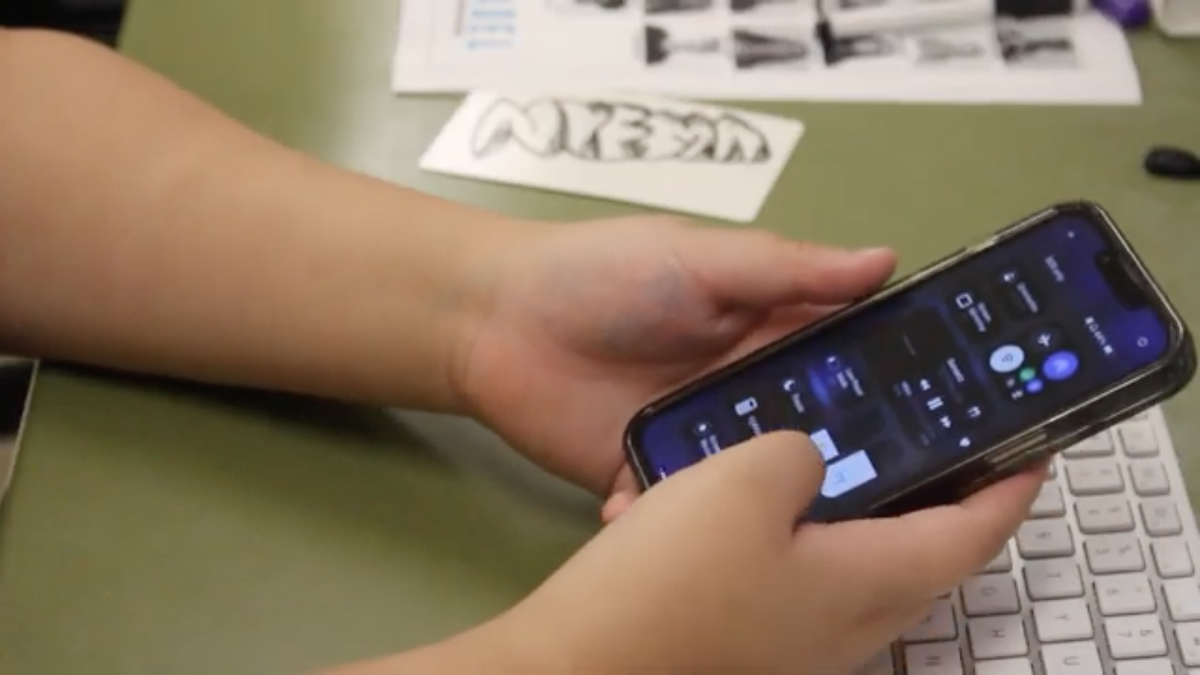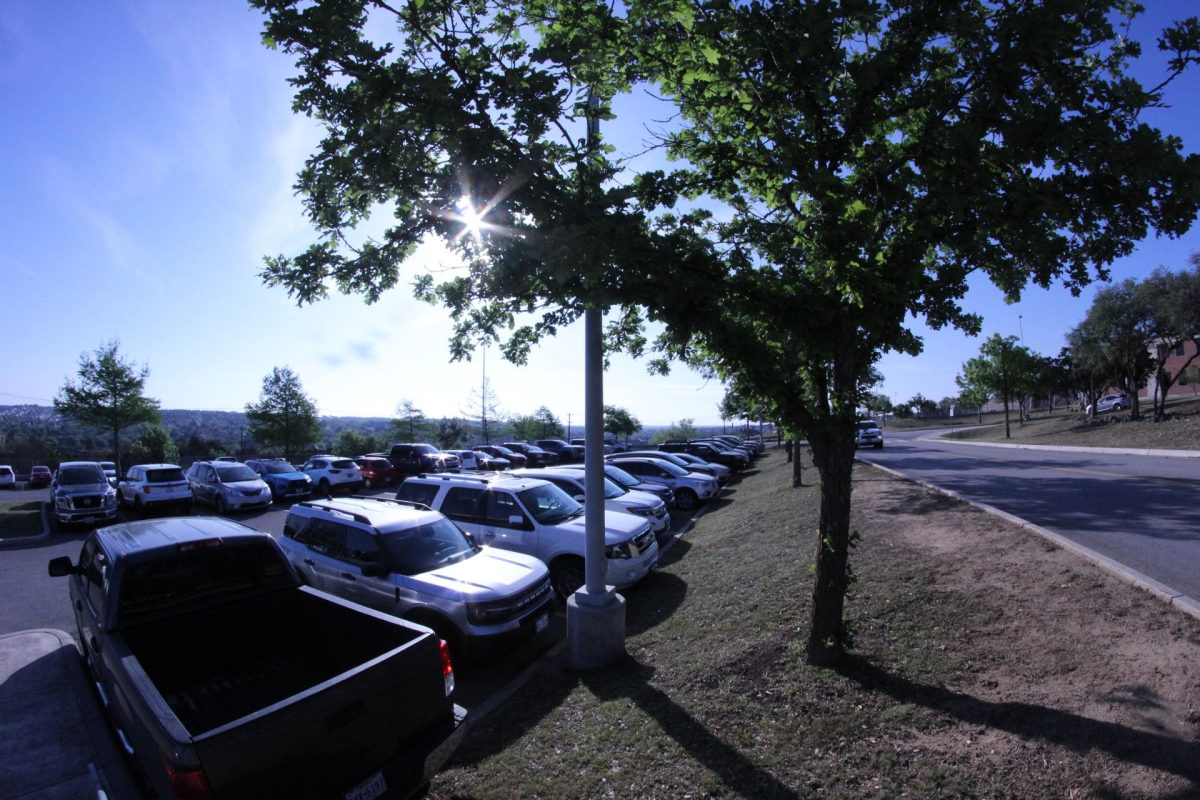by Daisy Creager|Staff Writer
It was a normal conversation. Late on a Saturday evening, Shonda Gonzales’s daughter called her to say she was off work and going to a friend’s house. Yes, she had a good day at work. No, she would not stay out too late. Suddenly, there was a loud crunching sound. Her daughter stopped talking.
On January , senior Hannah Peterson was in a major car accident.
“I was driving on 1604, talking to my mom on the phone and just driving normally,” Peterson said. “I was driving and all of a sudden I just hear all of this commotion ahead of me, and I’m like ‘what’s going on?’ All I see is a car pull out and other cars just going different places and there’s too much for me to handle.”

Within seconds, a car veered left into the median, another merging into his lane, causing Peterson to hit them. The front of her car was crushed, her windshield shattered.
“It was really scary, it was like a horror movie,” Peterson said. “I’m trying to remember everything but it just happened so quickly. I was really dizzy. It just felt like I was upside down for like ten minutes. I couldn’t hear anything because of the explosion of the airbag and the sound of the glass scared me to death.”
Whether it’s a major accident or a fender bender, car accidents are stressful, and many teenagers do not know how to handle them until after they experience one. However, accidents can happen at any time, so teenage drivers should always be prepared. So if a teenager is in an accident and does not have an adult with them, what should they do?
“My [first] suggestion as a parent and as a driver to that young person is to gather their thoughts,” VP of programs for the Johnson PTSA Melinda Cox said. “[They] should stay in the car and figure out if they’re okay and figure out where they are. As a new driver, it is a very scary experience. It’s physical, it’s emotional. What you don’t want to do is get out of the car, be panicked, and not have a sense of where you are or what happened.”
After getting their bearings, the teenager should make sure everyone involved is not injured, and get to a safe place.
“First step is make sure you and everyone else in your car is okay,” campus Officer Donald Smith said. “Before anything else, you need to get out of the street. A lot of people die on the street. Last year there were 3068 deaths on Texas roads. Get out of the street, try to get in a parking lot if you can. If you can’t move the vehicles, you need to call 911 because they will direct traffic and take care of that for you.”
If anyone is injured, an ambulance should be called. Then the teen should contact their parents to let them know what happened.
While it is a common belief that the police should be called in the case of any accident, according to Smith, it is not always necessary.
“You don’t need to call the police if you can settle it with the other driver,” Smith said. “We have what we call a CR3 report which is an accident report, and a lot of times they won’t even right one up unless it’s over $1000 of damages. A lot of times the police are not necessary.”
If it is difficult to determine whether police involvement is required, a couple of factors should be considered.
“It really just boils down to the extent of the accident and injury,” Cox said. “If it’s what I like to call a friendly fender bender, then there is not really a need to get a police officer involved. However, it also depends on the other person involved. If that person is not being compliant and you feel like you might be in danger, than you might want to get the police involved.”
Whether or not the police are involved, the drivers need to exchange information. According to Smith, teen drivers should expect to both give and receive everything on their insurance card, as well as contact information. They should also write down the make and model as well as the license plate numbers of both cars.
“As a young driver you need to be aware of where that information is in your car,” Cox said. “Having a car is a huge responsibility and with that responsibility is knowing your policy and driver’s license information. It is a very grown up responsibility to be driving a car.”
According to the Centers for Disease Control, teen drivers ages 16 to 19 are three times more likely than drivers aged 20 and older to be in a fatal crash. While accidents cannot always be prevented, there are several things that teens can do to lower their own risk. Most of them involve limiting distractions.
“Everyone is guilty of driving distracted,” Cox said. “When you’re behind the wheel, your main focus [should be] to drive safely. That’s really important when you’re a brand new driver because you don’t have enough experience and then you’re texting and it’s a lot more dangerous than I think most people realize.”
As the sponsor of Johnson Jaguar Smart Driving Club, Cox has worked for the past two years to bring a safe driving message to Johnson. The club meets once a month and does projects such as compiling distracted driving videos and posters.
“We have a simple message,” Cox said. “Our aim of the club is to remind people not to drive distracted, mainly texting and driving because it is a rampant problem, not only with teenagers but also with adults.”
Cox warns that evidence of distracted driving can be used against teens in the case of an accident.
“With probable cause [police] can subpoena your phone records, and more severe penalties for the accident can incur if it seems that you were texting and driving,” Cox said.
In Hannah Peterson’s case, thankfully, nobody was seriously injured. However, she is now suffering the consequences of being involved in the wreck.
“At a legal standpoint it looks like it’s all my fault, no matter how I explain it,” Peterson said. “There were so many different things that went wrong with the situation, but since I hit them from behind, it all goes on me. The price of my insurance is going to go up now, I still need to pay off my car and on top of that, I still need to find another car to drive. Going to the hospital, although I was fine, is another little bill – but those add up. The stress of everything is crazy.”

And Peterson is also paying an emotional price.
“Well, my freedom is taken away,” Peterson said. “I have to be taken everywhere. I’m helpless. Driving to me is a way to get away, my quiet time, a time to just be alone, listen to music. Driving is one thing that’s like a responsibility for [teenagers]. It makes me feel mature and old and now it’s like I’m going back to middle school. Mentally it’s really hard.”
Although it may take time to recover from the emotional and financial setbacks caused by the wreck, Peterson will definitely learn from what happened and do things differently in the future.
“Don’t take advantage of driving,” Peterson said. “I did. I messed with my phone, I texted, I talked on the phone. I felt like driving was a chore. It’s not and I feel like nowadays people are not being as responsible driving. Slow down, you never know what’s going to happen.”


